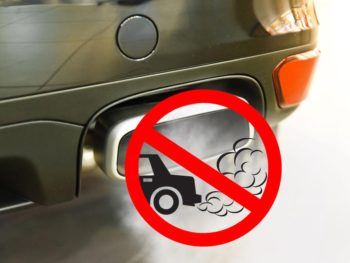Idling drivers could get instant fines
Drivers who repeatedly leave engines idling while stationary could get fines under new proposals said to under consideration by the Government.

Recent data from Airmax Remote showed that idling fleet vehicles are risking fines, increased fuel consumption and damaging air quality
According to The Times, environment secretary Michael Gove is looking at giving extra powers to local authorities to tackle the issue, supporting Westminster City Council’s call to be given the power to fine drivers without warning if they have previously been caught with an idling engine.
Under current measures, police officers can issue a fine if a driver ignores a warning and continues to idle for at least a minute; fines stand at £20 or £80 depending on which regulations the authority uses to enforce the law. However, many authorities are not making use of the regulations.
Recent data from Airmax Remote found high numbers of business fleet vehicles have been seen idling, particularly during the winter and summer months of 2018, leading to increased fuel consumption and damaging air quality.
According to Paul Loughlin, a motoring law solicitor at Stephensons Solicitors LLP, fining repeat offenders could be an effective move.
He commented: “These powers are likely to prove an effective deterrent and will go some way to reducing the pollution levels in our towns and cities, however it remains unclear how local authorities will enforce them. There is an onus on the Government to spell out how these powers will be used as well as making it clear for drivers to turn off their engines whilst parked.
“The fines, some of which stretch to £1,000 for repeat offenders, will be keenly felt in particular by businesses and couriers, who often leave their vehicles running whilst making deliveries.”
The RAC has previously said it welcomes idling fines if the correct warning procedures are in place. Speaking last year in response to reports that local authorities were increasingly looking at anti-idling measures, RAC heads of policy Nicholas Lye said: “Idling engines can produce up to twice the amount of emissions of an engine in motion, and for drivers it can mean higher fuel bills too.
“Measures like this can play a big part in changing driver behaviour, by encouraging them to really think about how they reduce their emissions footprint. If schemes like this can make enough of a difference in reducing emissions, there may be less of a temptation for local authorities to implement wider charging schemes for drivers.”
However he said that the correct procedure should be for an enforcement officer to ask the driver to switch their engine off and only issue a penalty if they refuse.












